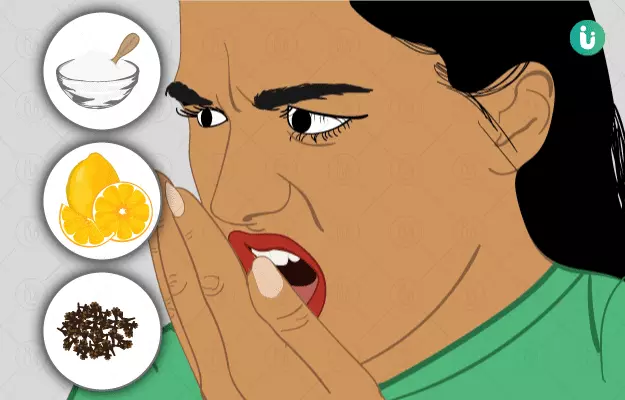There are few things that are more off-putting than bad breath. It can not only ruin one’s confidence but also leads to embarrassment in public.
Contrary to popular belief, bacterial growth in your oral cavity is not the only reason for bad breath, though it may be one of the major reasons. Bad breath may also occur due to other conditions related to the gastrointestinal system such as H.pylori infection of stomach and diseases of the upper throat. These bacteria produce specific compounds in your mouth and gut, which manifest in the form of bad breath. Fortunately, for most people, bad breath can be easily tackled with some basic improvements in your dental hygiene.
Read on to know all those lifestyle modifications that may help you get rid of your bad breath problems at home without the need to visit a doctor. And as an extra treat, evidence-based home remedies for bad breath are also discussed.






















